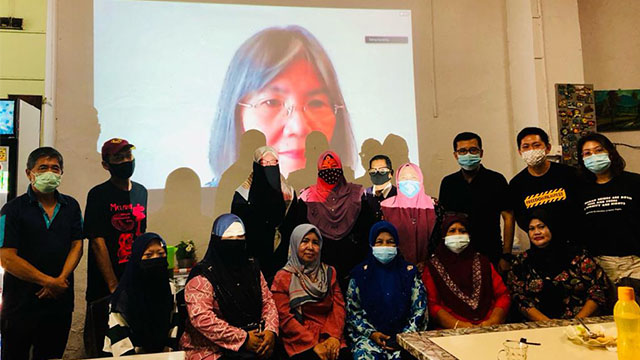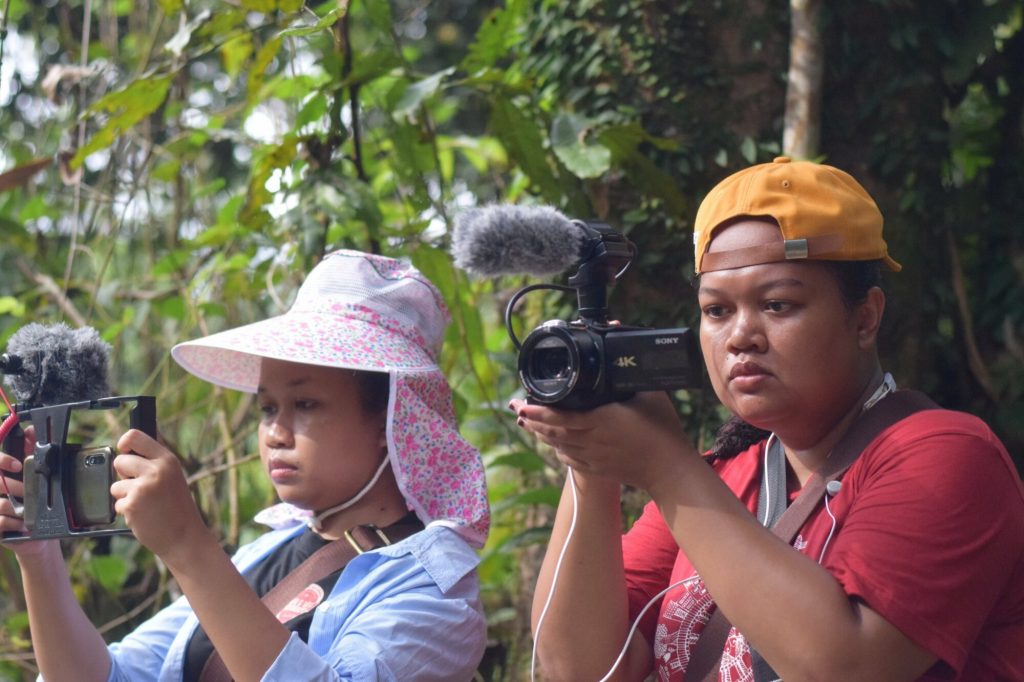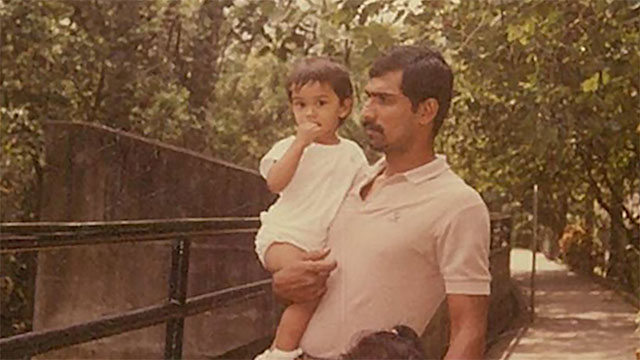What happens after you win the FFF Grant?
Making an impact in their communities and beyond, we speak to four winners ahead of our Pandemik Dua Darjat call for entries running right now.
Read these stories to get inspired about how documentaries can change lives.

In her mid-70s Lily Fu proved that its never too late to do something new and that includes making her first film, “Meniti Senja” about the increasing numbers of abandoned elderly as result of Malaysia reaching aging nation status.
This weighty subject was told through the lens of an elderly care centre in Puchong, Selangor, and the challenges it must go through in providing for its residents.
In making the film through-out the better part of 2020, Lily said that it was like being a mother again.
“It’s like after nine months you deliver your new-born baby. A huge relief that it is finally out,” adding that being part of FreedomFilmFest 2020 was a new experience.
Who would want to see a film about abandoned elderly (people)?
– Lily Fu, FFF 2020 FILM GRANT WINNER
Not only did she make get to make her first film, but she participated in the online discussion after it.
“Meniti Senja” was made possible by a film grant provided by FFN through its annual grant programme. Other films who won grants were “Ayahku Dr G”, “Petani Bukan Pemalas” and “The Shades of Love”.
These works premiered at FreedomFilmFest’s 2020 online festival in December 2020 along with other films including “Selai Kayu Yek”, “Klinik Ku Hutan” and “Nasir Jani Melawan Lembaga Puaka”.
It was the 17th edition of the annual human rights film festival organised by the Freedom Film Network, a non-profit whose mission for nearly two decades is to use films to make meaningful impact on society.
The response to Meniti Senja was overwhelming. The first 150 tickets for the online premiere was snapped up within 24 hours.
“I had initial doubts about whether the film would attract even a modicum of interest. Who would want to see a film about abandoned elderly (people))? So bleak, so unappealing. A turn-off for most people, especially the younger generation,” Lily said.
But the buzz it generated has continued after the film’s premier. Lily has seen her monthly calendar quickly filling up as requests pour in to screen the film.
She has gone on to organise screenings for people who tuned in from Muar, Johor, to supporters and members of groups such as Seniors Aloud and the University of the Third Age.
One screening and discussion was especially emotional, as audience members came forward to share about how hard it was to care for their own elderly parents.
In response, the panel of experts in the discussion offered insights, advice and hope on how to better understand the needs of the elderly. They also pointed to places where those audience members could receive help.
This two-way interaction, where viewers engage with a film and take home something from a discussion, is part of the social impact that FFN strives for.
Besides focusing on the crafting of making films, FFN puts just as much emphasis on the roadshows and campaigns to bring the film to as wide an audience as possible.
Each screening is always paired with a discussion of the film’s subject matter so as to explain a complex issue, advocate for a cause or in the case of “Meniti Senja”, to help people.
Amplifying voices and changing attitudes
Rosdila Ngah Roslan, a Temiar tribeswomen and production crew member, related how her community and other Orang Asli tribes were overjoyed to finally see young Orang Asli women represented on the silver screen.
For young Orang Asli women, the social impact of works “Selai Kayu Yek” and “Klinik Ku Hutan” was more immediate as it gave voice and visibility to those who in the past, were overlooked by the mainstream.

It was important not just for them to be seen on screen to be given the ability and power to tell stories that they want, said Rosdila, a crew member for “Selai Kayu Yek” and “Klinik Ku Hutan”.
“They were very happy with how brave we were in expressing ourselves and our voices through these films. They wanted more Orang Asli women to produce films and stories.”
Nurfitri Amir, another of the 2020 grant winners, has also been busy screening his films to paddy farmers, climate and environmental activists, educators and politicians.
“Petani” details a movement among paddy farmers to break free from monopolistic practices in the rice farming industry by planting their own seeds instead of relying only on government-mandated ones.
Although Fitri is a seasoned activist and researcher, this is his first time using film as a tool for advocacy. He is encouraged by how the film and its message has managed to reach those who had never before been aware of the struggles of rice farmers.
“Comments from those who have viewed the film have been inspiring for me as many people did not know of the issue before they watched the film. It just shows how documentary films can be a powerful tool to reach people beyond one’s activist circle.”
Documentary films can be a powerful tool to reach people beyond one’s activist circle.
Nurfitri Amir – FFF 2020 GRANT WINNER
The experience of making “Petani” has inspired him to produce more videos based for his research and activism so as to appeal to more audiences.
Like Fitri, Loh Jo Yee, of the team behind “Ayahku Dr G”, is encouraged by the support the film has received.
“Being able to sell out our first few batches of tickets within a couple of days made me feel that we have the support of a small albeit growing community that wants to understand the topic of marijuana better which is very encouraging.”
“Dr G” or “Ayahku Dr G”, is about the struggles of a daughter trying to get justice for her father, Amiruddin, who was arrested for using medical cannabis to treat his chronic illness. Besides Jo Yee, the film was made by Hidayah Hisham and Dominique Teoh.

“Being able to sell out our first few batches of tickets within a couple of days made me feel that we have the support of a small albeit growing community that wants to understand the topic of marijuana better which is very encouraging.”
“Dr G” or “Ayahku Dr G”, is about the struggles of a daughter trying to get justice for her father, Amiruddin, who was arrested for using medical cannabis to treat his chronic illness. Besides Jo Yee, the film was made by Hidayah Hisham and Dominique Teoh.
“As there were many who weren’t able to catch the film, there is a demand for more screening opportunities too which is a great chance to spread Dr. G’s story wider and hopefully also to educate more people about medical marijuana.”
The Dr G team is building a website that will act as resource not just for the film but for activists working to reform the nation’s drug laws and public attitudes towards medical marijuana.
The site will allow supporters to get updates on Amiruddin’s legal battles and find ways to support him.
The experiences of Lily, Fitri, Rosdila and the Dr G team show that the impact of working on an FFN film is a life-changing experience that enriches and furthers their own social missions whether it is about reforming drug laws, helping the elderly or amplifying the voices of rice farmers and Orang Asli women.
